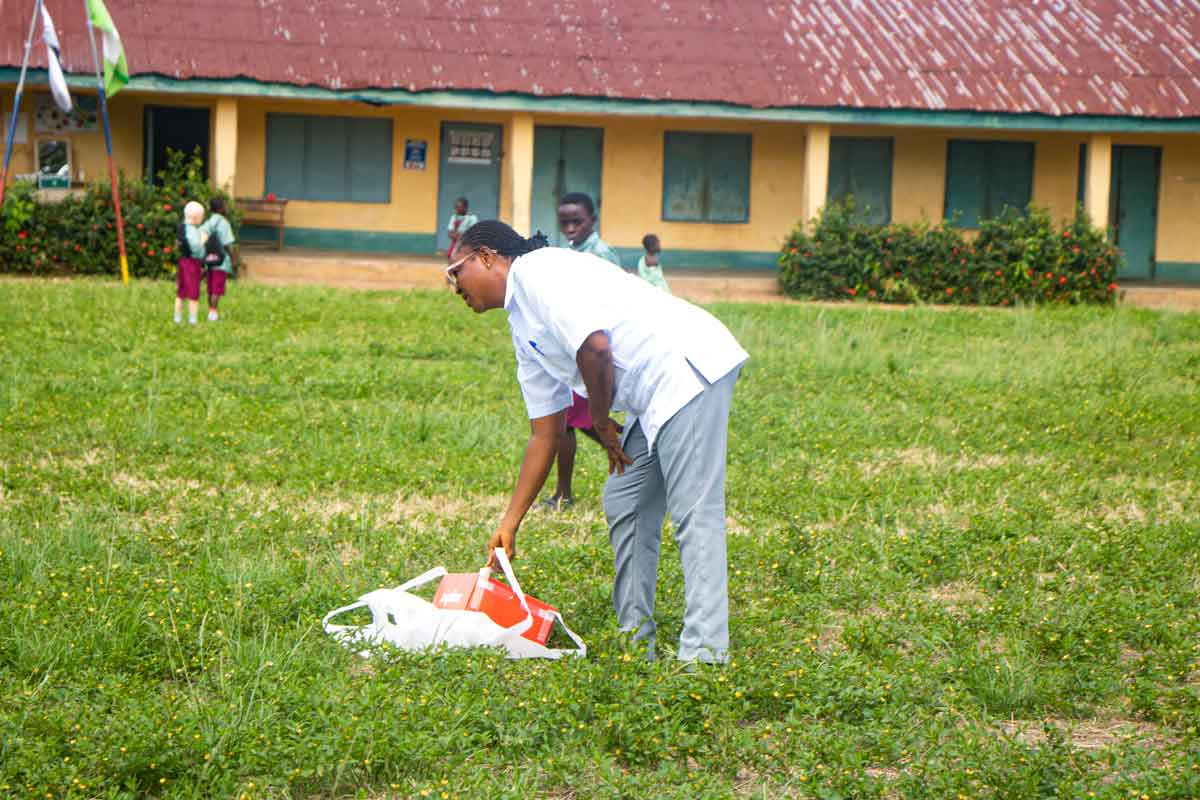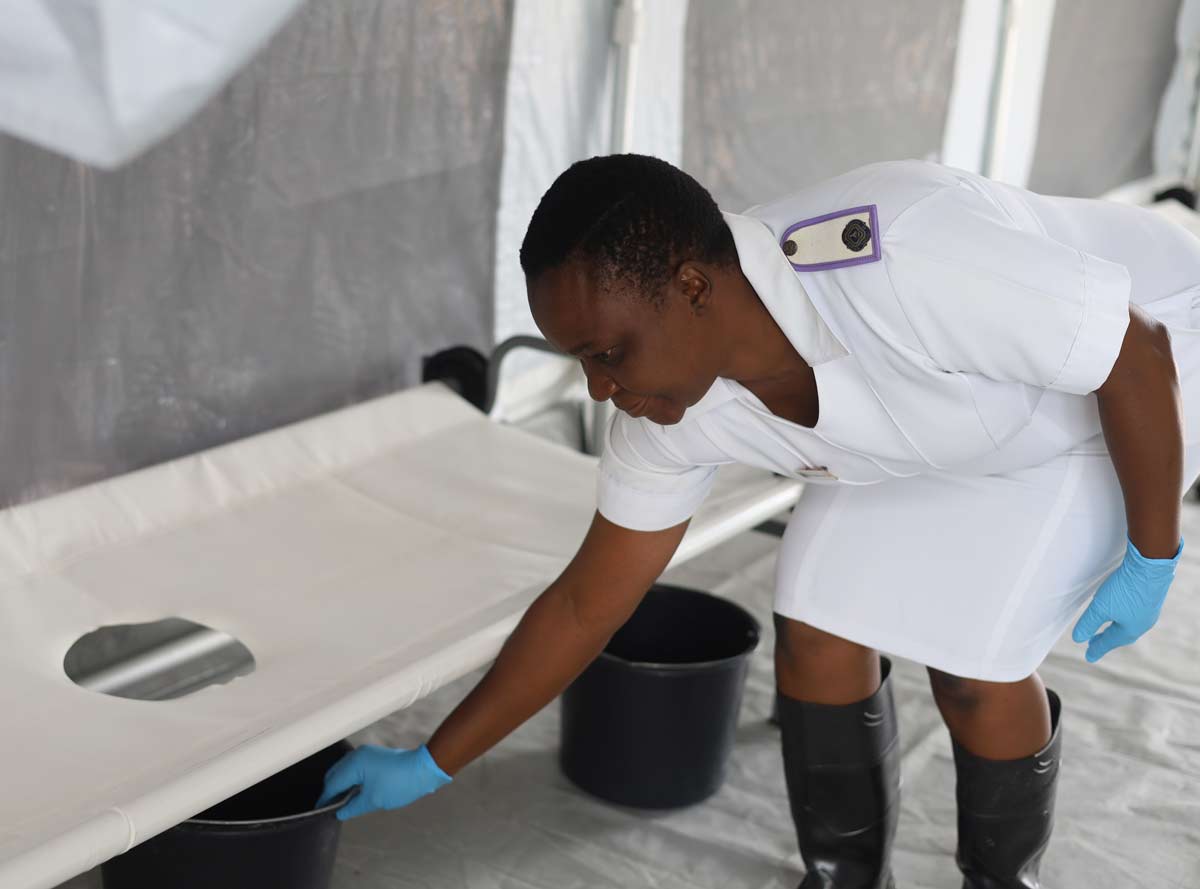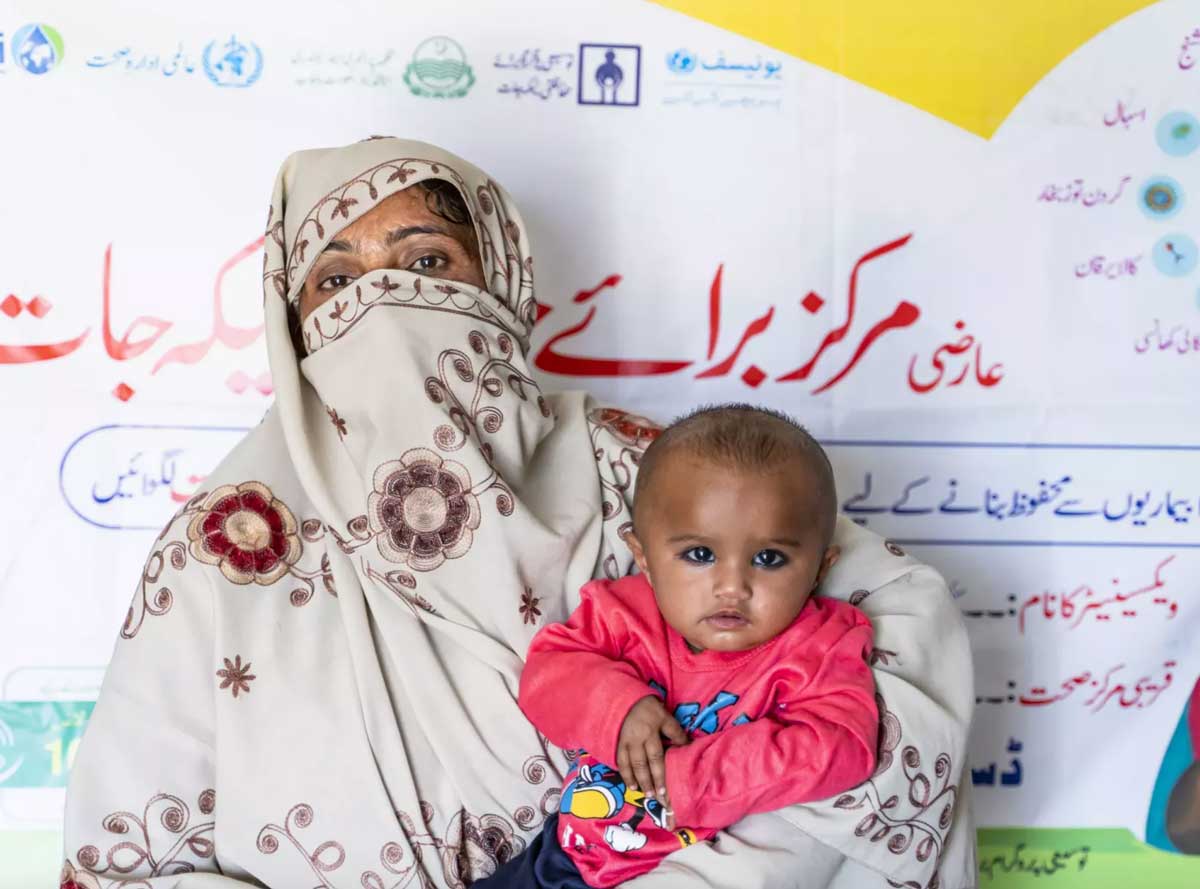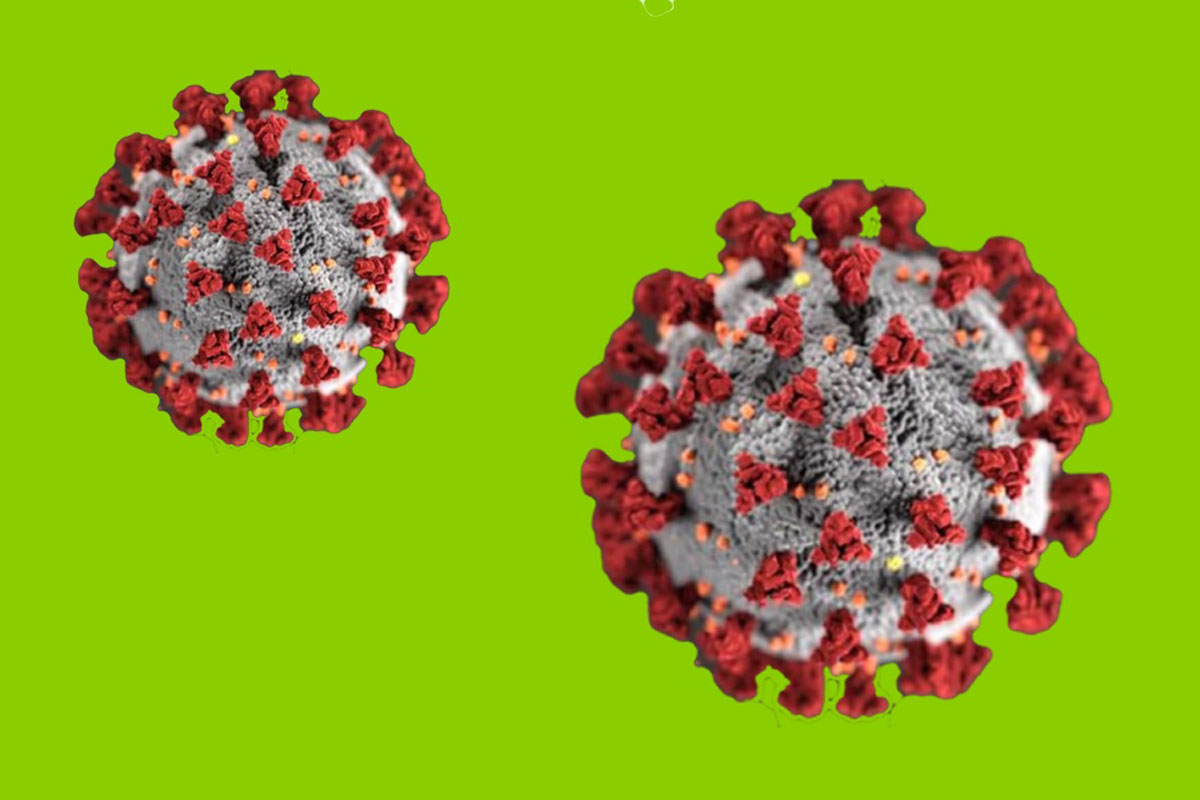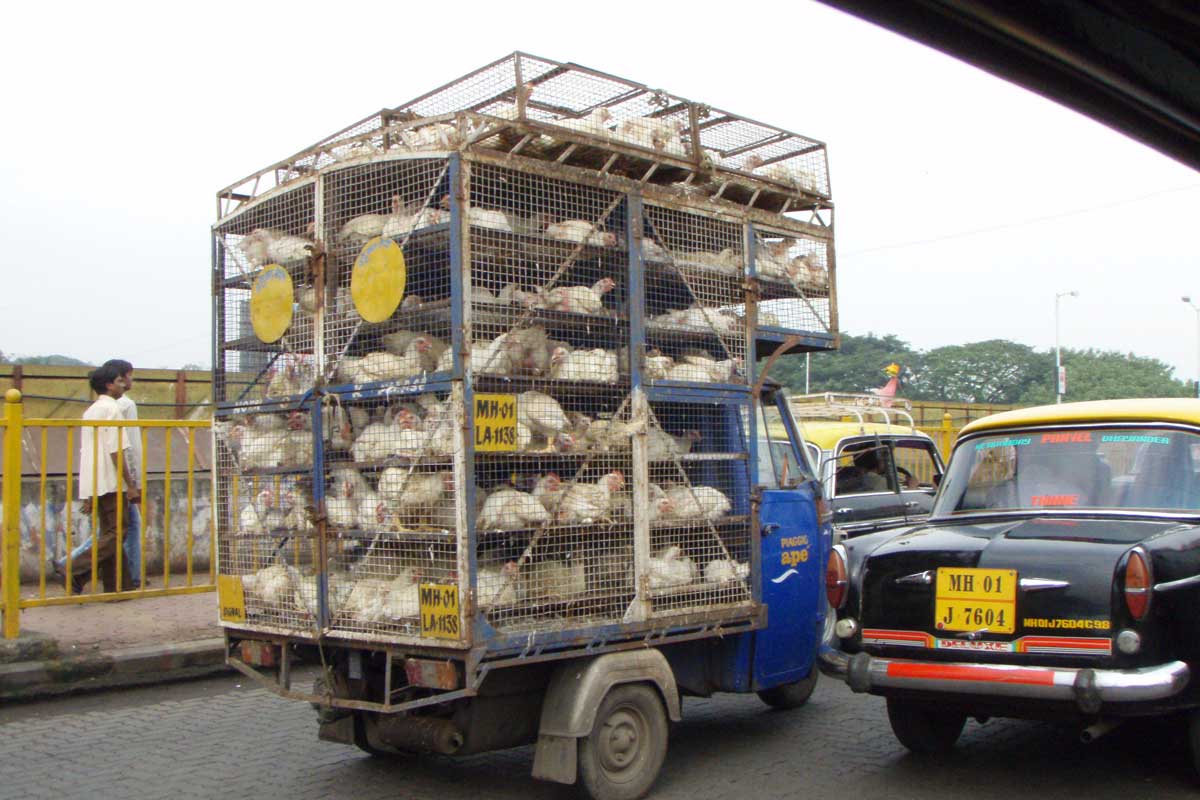Living with the after-effects of meningitis
About one in five survivors of bacterial meningitis live with life-changing sequelae.
- 2 October 2024
- 9 min read
- by Lakshmi Gopinathan

It came out of nowhere: João Marcos, aged 56 days, fell sick with Group B meningococcal meningitis. He spent more than 100 days in the ICU fighting for his life. Doctors gave him just a 1% chance of survival.
“Imagine having your life suddenly transformed by a devastating disease. It is unexpected; everything changes after the diagnosis of meningitis,” says his mother, Suelen Caroline Rosalino. “It is traumatising to deal with the unpredictability of the news, which can range from the possibility of sequelae to death.”
João lived. But like many survivors of bacterial meningitis, the boy went home, changed forever.
He’d had a tracheostomy put in at his throat, a transtibial amputation of the left leg, an amputation of half the right foot, and he had lost eight distal phalanges – the tips of the fingers. He also had a brain injury to his right frontal lobe.
“For children, there is a need for adaptations at school; for adults, the difficulty of reintegration into the labour market. The impact and difficulties do not end with hospital discharge; they remain in the daily lives of these families.”
- Suelen Caroline Rosalino, the Associação Brasileira de Combate à Meningite
“Despite all this, in the smallest details he always teaches us a lot! His strength and his will to live drive us to always seek beauty in the most difficult seasons of this process,” Rosalino tells VaccinesWork, calling her son a “true warrior” who, like all warriors, carries the marks and scars of his fight on his body.
Since his hospitalisation, Rosalino has taken up her own campaign: she is now the President of the Associação Brasileira de Combate à Meningite, the Brazilian Association to Combat Meningitis. Co-founded by Rosalino and her husband, the Association aims to raise awareness about meningitis and its prevention, to empower people, facilitate access to vaccines and to provide support to both survivors and their families.
Associação Brasileira de Combate à Meningite are now members, and Rosalino represents the Americas on the Advisory Council of the Confederation of Meningitis Organisations – a worldwide network of people and organisations who are driven by a shared purpose to defeat meningitis.
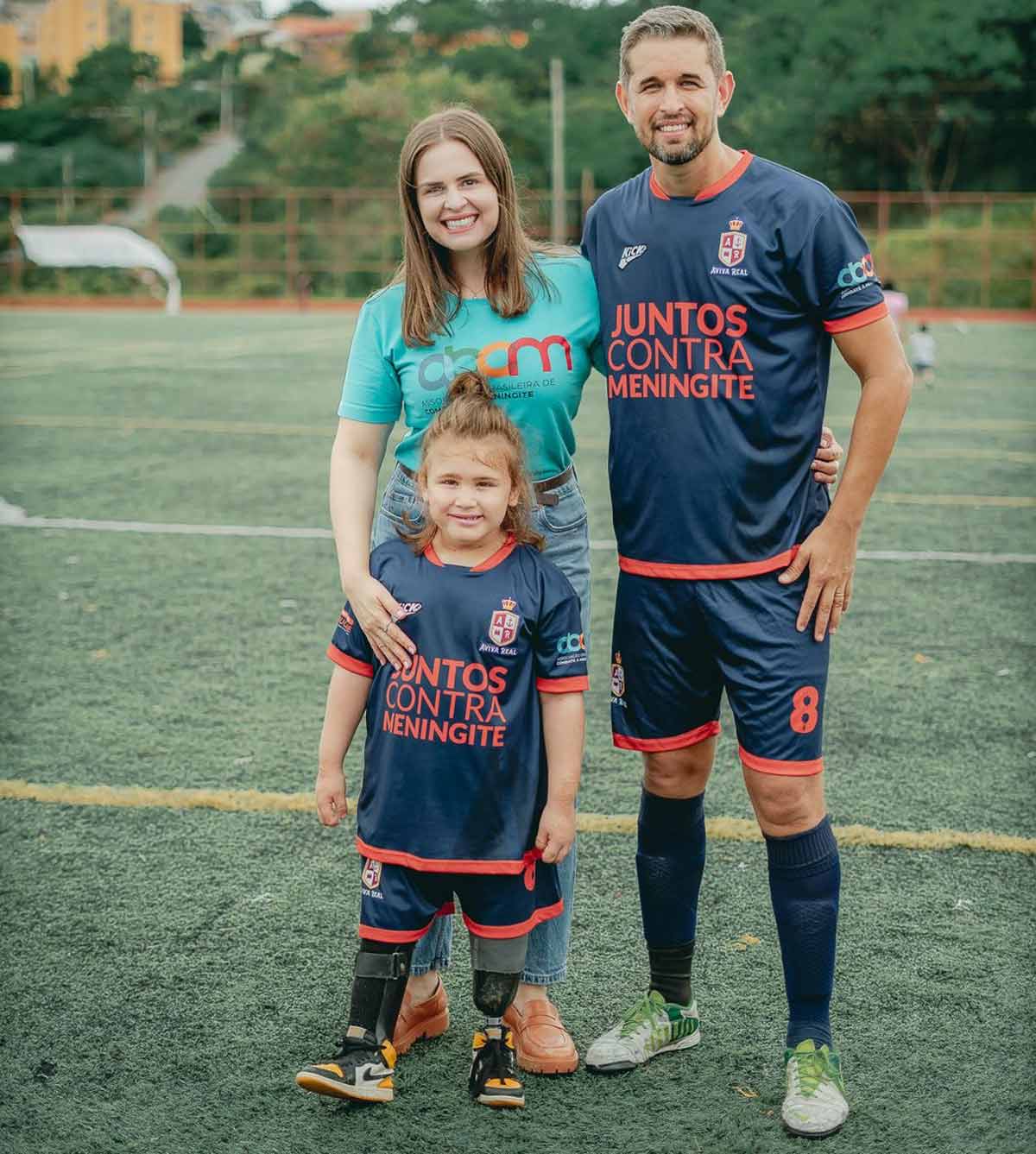
Meningitis
Meningitis – an inflammation of the fluid and layers of membranes covering and protecting the brain and spinal cord – can be caused by infection with a variety of pathogens such as bacteria, viruses, parasites and fungi. But the bacterial forms of the disease can be serious
and deadly if not treated promptly. One in six people who contract bacterial meningitis are expected to die – sometimes within just a day of first symptoms.
One in five survivors live, like João, with long-term complications called ‘sequelae’. From subtle to severe, they span a diverse gamut: cognitive impairment, learning difficulties, behavioural problems, hearing loss, seizures, vision impairment, motor weakness or paralysis and limb amputations after sepsis.
Of the four main bacteria that commonly cause meningitis – Neisseria meningitidis (meningococcus), Streptococcus pneumoniae (pneumococcus), Haemophilus influenzae type b (Hib), and Streptococcus agalactiae (group B streptococcus) – vaccines are available for the first three.
Despite the availability of good vaccines against the primary bacterial causes of meningitis, the global meningitis burden remains substantial, due to challenges faced by countries in fully immunising their populations.
According to a study that systematically analysed the burden of infectious meningitis cases in 24 countries, an estimated 2.5 million new meningitis cases occurred globally in 2019. Of the 236,000 deaths tracked by the researchers, the highest proportion were caused by pneumococcus bacteria, with the age group under five years accounting for nearly half of all the meningitis fatalities.
Low- and middle-income countries (LMICs) face higher rates of bacterial meningitis. A review from 2022 approximates the rates of new cases per year as 0.9 per 100,000 individuals in high-income countries compared to 80 per 100,000 individuals in low-income countries. Low-income countries also face mortality rates as high as 54% for bacterial meningitis.
Surviving with sequelae
We troublingly don’t know exactly how large the global burden of non-fatal sequelae from bacterial meningitis is. Despite the profound physical, emotional, psychosocial and financial consequences of long-lived meningitis sequelae both on survivors and their families, we don’t have a lot of rigorous insights onto their true societal and economic impact.
The burden is considerably greater in LMICs. Parts of sub-Saharan Africa, South Asia, Central Asia, East Asia and the Pacific, and Latin America see especially high rates of bacterial meningitis. Higher rates of meningitis translate to higher rates of sequelae from meningitis.
A meta-analysis from 2010 of around 18,000 survivors of bacterial meningitis estimated the risk for a major neurological sequela to be far higher in Africa (25.1%) and South-East Asia (21.6%) than in Europe (9.4%). Sequelae tracked included cognitive impairment, visual impairment, motor deficit, hearing loss, seizures and hydrocephalus – an accumulation of cerebrospinal fluid in brain cavities.
“Socially, for those who survive and become people with disabilities, a struggle to deal with prejudice begins.”
- Suelen Caroline Rosalino, the Associação Brasileira de Combate à Meningite
However, there’s a clear need for updated insights into the scale and nature of the burden of meningitis sequelae. Particularly in LMICs, where that scarcity of data overlaps a scarcity of resources, an unclear outlook on the situation can translate to undeveloped public health strategies, poor quality of intervention and insufficient follow-up medical services for survivors.
The reality on the ground is more likely than not a picture of unmet need. “We have survivors who live on financial donations to maintain the basics, such as food, medication, food, physiotherapy sessions, therapies and even transportation to get to these treatments. Others are waiting for a vacancy at surgeries, some have been waiting for more than 12 months! Many survivors, due to amputation and the lack of conditions to acquire a quality prosthesis, face difficulties in resuming their previous professional activities,” says Rosalino, describing her experiences in Brazil, an upper-middle-income country.
Aftercare
The challenges faced by survivors of bacterial meningitis extend beyond medical needs and can be lifelong. “For children, there is a need for adaptations at school; for adults, the difficulty of reintegration into the labour market. The impact and difficulties do not end with hospital discharge; they remain in the daily lives of these families,” Rosalino explains.
Many survivors with long-term sequelae are uninformed about the support services available to them. Caroline Hughes, Support Services Manager at Meningitis Research Foundation, says, “Although support is out there, one of the greatest barriers is knowing what’s available to you and how to access it. Access to mental health services is difficult, with high costs, long waits and time-limited opportunities creating barriers, leaving survivors without much-needed support.”
Rosalino says in her role, she advocates for everything from the need for better “access to information about the rights [survivors] have, to the constancy of basic rehabilitation treatments, to quality equipment (prostheses, orthoses, comfortable chairs), to neurological follow-ups, to inclusion and leisure projects, and to therapies for family members!”
Families and caregivers have to adapt to a new and persistent level of need on the part of the survivor. “The disease brings with it physical, cognitive and emotional sequelae such as anxiety, depression and panic attacks that affect not only the survivor, but also family and friends,” says Rosalino. “The number of medications, hospitalisations and the constant need for rehabilitation also directly affect the family, who often need to travel long distances or even move to another city to access the necessary treatments,” she adds.
“Many survivors need intensive care, which makes someone in the family, especially the mothers, dedicate themselves fully to the care of their child. Many family members abandon their duties for the comprehensive care of the affected person, which directly impacts family income. This, in turn, reduces access to quality treatments,” Rosalino highlights.
Even with access to support, she points out, “Socially, for those who survive and become people with disabilities, a struggle to deal with prejudice begins.”
Invisible aftershocks
Some of the less obvious sequelae of bacterial meningitis – including forms of cognitive and behavioural complication – may go undiagnosed and not receive appropriate medical support, despite having profound impacts through the life of the affected survivor.
Hughes says, “Some of the most common after-effects we hear of are a range of neurological ones, for example, learning difficulties, memory challenges, difficulties concentrating, emotional regulation. These are challenging for survivors as, because you can’t ‘see’ them, they can be difficult to explain to others, and [people] don’t always know if it’s caused by meningitis or not, particularly if it’s something they had as a child.”
“Something I find interesting is the number of people who contact us, having had meningitis many years ago, to ask if ongoing challenges throughout their lives could have been a result of their experience. It’s eye-opening to see the number of people who have not had the information, advice and support that could have helped them following meningitis,” Hughes notes.
Limited medical and social support breeds isolation. Hughes explains, “The experience itself is distressing, frightening and isolating for survivors and those around them. People often experience a complex web of emotional and mental hardship, which can be further compounded by isolation, lack of understanding from others, and struggles to return to life as they knew it before meningitis.”
Hughes adds, “Survivors often talk about how important it is to be able to speak to people who understand the disease, the trauma and the after-effects, without having to repeat their experiences and advocate for themselves each time.”
Survivors’ stories from Brazil
By Suelen Caroline Rosalino
Ricardo Calimério Duarte, 40 years – São Paulo
In January 2023, Ricardo faced the tough battle against meningococcal meningitis. Persistent fever landed him in the hospital, where the disease progressed rapidly, causing widespread infection. Ricardo fought for his life in the ICU. The transtibial amputation of both legs was crucial in saving his life. Despite the severity of his illness, he never lost hope. With faith and family support, Ricardo faced rehabilitation with strength and determination. In just one month, he was already moving on his knees, and, with donated prostheses, he was able to walk again.
Today, Ricardo sees life with different eyes: "When we enter the PWD [Persons with Disabilities] world, we see disabilities with another eye. I see my disability as a form of inspiration. My life is more important than my legs."
Noah Silva Queiroz Mendes, 10 months – Ribeirão Preto
Noah was diagnosed with meningococcal meningitis type B and E. coliinfection in 2023, at just 1 month and 22 days old. After presenting with fever, weakness and seizures, he was hospitalised. He then tested positive for COVID-19 and was isolated for 21 days. During this period, he contracted pneumonia and several bacterial infections, suffered septic shock and underwent a tracheostomy. Despite doctors fearing that he was “brain dead”, Noah continued breathing and started hospice care. His mother organised a fundraiser to pay for therapies. Currently, Noah does physiotherapy and speech therapy, showing great progress. His mother, who stopped working to take care of him, says that her son's miracle gives her the strength to continue.
After so many challenges, she reinforces the importance of vaccination: "Meningitis exists. I, like many, did not know what exactly meningitis was or what the vaccine was. We have to take care of both our children and ourselves."
Rita de Cassia da Costa, 22 years – Rio Grande do Sul
Rita faced a battle for her life when, at the age of nine, she was diagnosed with bacterial meningitis. What seemed to be just an ear infection, led to three months of hospitalisation in isolation, more than six surgeries and permanent sequelae. Rita has lost 70% of her hearing and continues to have seizures. But she hasn’t given up: today, at the age of 22, she is studying to fulfil her dream of being a nutritionist.
"If it weren't for the support of my family, I wouldn't be here," says Rita. "It's my mother's faith and God that helped me. When I think about giving up, I remember everything I've been through and that gives me the strength to continue."
More from Lakshmi Gopinathan
Recommended for you



